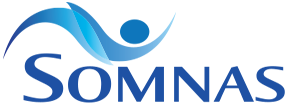DIAGNOSIS AND TREATMENT OF NARCOLEPSY

Table of Contents
QUICK FACTS
DIAGNOSIS
OVERNIGHT SLEEP STUDY
MULTIPLE SLEEP LATENCY TEST (MSLT)
Is My Child at Risk ?
treatments of narcolepsy
MEDICATION
Stimulants can help you stay awake during the day. Examples include modafnil (Provigil) and methylphenidate (Ritalin).
SSRI’s, or antidepressants, are often prescribed to treat cataplexy. They also can treat other narcolepsy symptoms such as sleep paralysis and hallucinations.
BEHAVIORAL AND LIFESTYLE CHANGES
Maintain a regular sleep-wake schedule.
Adults should sleep 7 hours or more per night. Teens should sleep 8 to 10 hours nightly.
Take brief, scheduled naps at strategic times during the day.
Get regular exercise and exposure to bright light during the day.
Tips
- Recognizing your limits will keep you and others safe. You may want to avoid driving or operatingheavy machinery. You also should consider avoiding jobs that require night shift work.
- Be honest with your sleep doctor about your symptoms. Be sure to report any unpleasant medication side effects.

QUESTIONS ABOUT A SLEEP ISSUE? LET’S TALK.
Imtiaz Ahmad, MD, MPH, FCCP
Dr. Imtiaz Ahmad is a highly qualified physician, Board Certified in Pulmonary and Sleep Medicine. He has received advanced training from some of the most prestigious institutions, including Harvard University, Cornell University, State University of New York at Brooklyn, and the University of Mississippi. SOMNAS is a medical facility that is committed to improving and maintaining the health of patients with sleep disorders. The expert team at SOMNAS is known for their compassionate and high-quality care. They offer unparalleled treatment and care to patients on the Gulf Coast of Florida, ensuring a better and healthier life for them.
Job Title: Board Certified in Pulmonary Medicine

